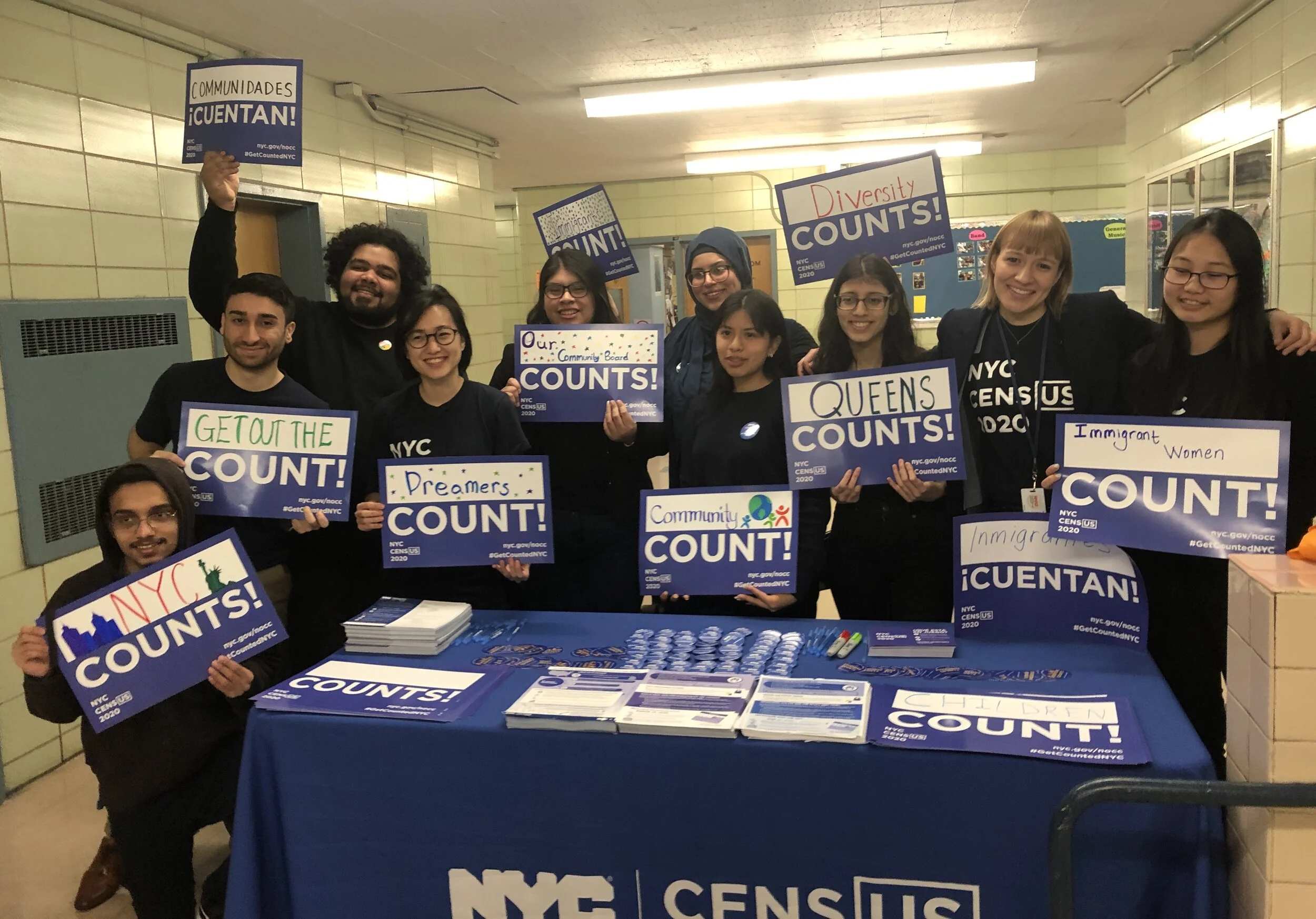City Census force continues effort to ensure NY keeps its House seats
/Volunteers urged Queens residents to submit their completed forms at an event in Jackson Heights in February. Eagle photo by Rachel Vick
By Rachel Vick
The city’s census team, a sprawling network of community organizations and local leaders, has adapted its efforts to reach every New Yorker during the citywide isolation order. The next ten years of Congressional representation depend on the success of the engagement initiative.
A complete count will curb a too-low population estimate, which could prevent the state from losing seats in Congress, the every-10-years Census determines the distribution of House seats and an undercount would put New York at risk of losing two seats, experts say.
“The future of the state senate, state assembly, and city council districts are all based on census population — there's a lot at stake here,” said Jeffrey Wice, director of the New York Law School’s New York Census and Redistricting Institute.
But Queens has been preparing for this moment for a decade, he added.
“Queens County has one of the best organized compete count efforts in New York State,” he said.
Seven members of Congress represent at least some part of Queens, though only one district is contained entirely in the borough — U.S. Rep. Grace Meng’s District 6. Districts 3, 5, 7, 8, 12 and 14 all include areas in other boroughs or Long Island.
Districts are determined by population size, with around 711,000 people per district based on the 2010 Census data.
This year’s census participation is especially important as the Census Bureau works through COVID-19 quarantines, in part, Wice said, because data needs to be submitted in time for the advisory committee’s December 2021 deadline to redistrict ahead of 2022 elections.
“A lot of people don’t want to be bothered by the census when they're dealing with family and health emergencies and other pressing issues but the census can't wait,” Wice, who has worked in redistricting, voting rights, and census law for 40 years. “The census bureau is working right now to figure out how they can extend the census counting period without having to go to congress to make statutory changes.”
For now, door-to-door efforts have been suspended until April 15, but self-reporting is still open online or by phone, though wait times have increased due to staffing adjustments.




